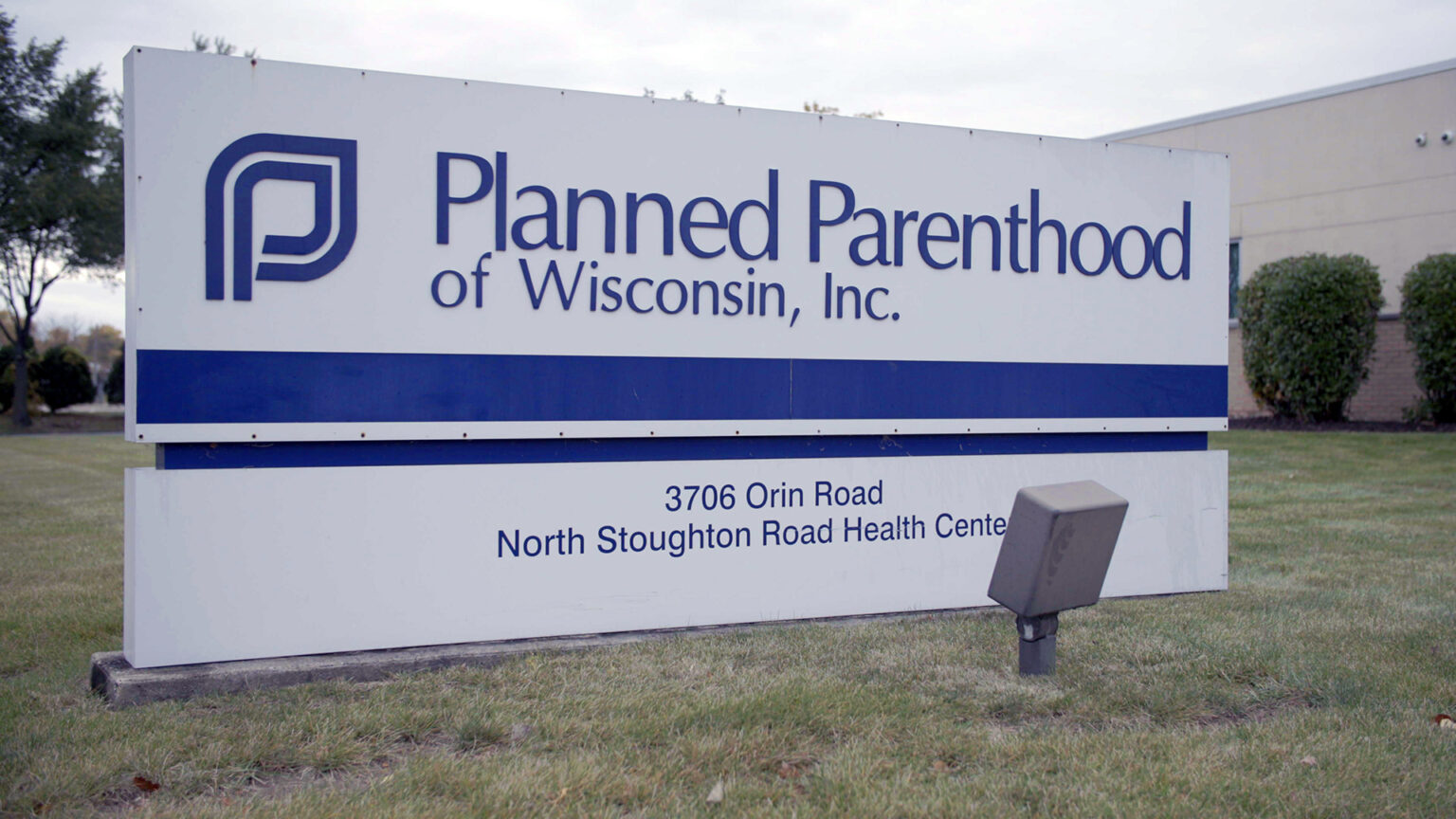Planned Parenthood to resume offering abortions in Wisconsin, citing court ruling
A resumption of abortions at clinics in Milwaukee and Madison comes as a lawsuit challenging state law continues in county court, and is expected to eventually reach the Wisconsin Supreme Court.
Associated Press
September 14, 2023 • South Central Region

A sign notes the location of a Planned Parenthood clinic in Madison on Oct. 13, 2022. The organization announced that it will resume offering abortions in Wisconsin on Sept. 18, 2023 after a judge ruled that an 1849 law that seemingly banned the procedure actually didn't apply to abortions. (Credit: PBS Wisconsin)

MADISON, Wis. (AP) — Planned Parenthood announced Sept. 14 that it will resume offering abortions in Wisconsin after a judge ruled that an 1849 law that seemingly banned the procedure actually didn’t apply to abortions.
The resumption of abortions on Sept. 18 at clinics in Milwaukee and Madison comes as the lawsuit challenging the state law continues in county court. It is expected to eventually reach the Wisconsin Supreme Court, which flipped to liberal control on Aug. 1.
Abortion clinics across the state stopped offering abortions following the U.S. Supreme Court’s ruling overturning Roe v. Wade in June 2022. Until then, Wisconsin’s decades-old statutes — interpreted to outlaw abortion in all cases except to save a mother’s life — were effectively nullified by the 1973 Roe ruling providing a right to abortion nationwide.
Currently, abortion is banned throughout pregnancy — with limited exceptions — in 14 states. Bans are being enforced in two more when cardiac activity can be detected, generally around six weeks into pregnancy and often before women know they’re pregnant. Judges have put enforcement of restrictions on hold in at least four additional states.
A divided federal government has ensured that there won’t be a nationwide ban or legalization immediately, and most states with liberal governments have taken steps to try to protect abortion access.
Most of Wisconsin’s closest neighboring states — Minnesota, Illinois and Michigan — have maintained that abortion is generally legal up to at least 24 weeks of pregnancy. Indiana’s near-total ban on abortion took effect in August. In Iowa, abortion remains legal up to 20 weeks of pregnancy as a court challenge continues against the state’s new measure banning most abortions after about six weeks of pregnancy.
Democrats in Wisconsin, including Gov. Tony Evers, used abortion access as a central focus of their reelection victories in 2022. State Supreme Court Justice Janet Protasiewicz, whose win in April gave liberals the majority for the first time in 15 years, ran as a supporter of abortion rights.
Evers hailed Planned Parenthood’s decision to resume abortions.
“This is critically important news for Wisconsin women and patients across our state who, for a year now, have been unable to access the healthcare they need when and where they need it,” he said in a statement.
Abortions were available at three Planned Parenthood clinics in Wisconsin prior to the Supreme Court’s overturning of Roe. A spokesperson said staffing levels allow for two clinics to do so now but the organization hopes to return to its former availability.
Julaine Appling, president of the anti-abortion group Wisconsin Family Action, called the move “audacious” and said the state ban remains in effect.
“No court has ruled that it is not enforceable,” Appling said. “It is still illegal in most instances for anyone to do an abortion in Wisconsin. So what the governor and Planned Parenthood are doing is promoting an illegal activity. Unfortunately, this illegal activity is life taking because it’s the intentional killing of an unborn child.”
Democratic Attorney General Josh Kaul filed a lawsuit in Dane County days after Roe v. Wade was overturned, seeking to repeal the ban.
Kaul argues that the ban is too old to enforce and that a 1985 law that permits abortions before a fetus can survive outside the womb supersedes the ban. Three doctors later joined the lawsuit as plaintiffs, saying they fear being prosecuted for performing abortions.
Dane County Circuit Judge Diane Schlipper ruled in July that Wisconsin’s 173-year-old abortion ban outlaws killing fetuses but doesn’t apply to consensual medical abortions. Her ruling, a victory for those fighting the ban, said that the legal language in the 1849 law doesn’t use the term “abortion” so it only prohibits attacking a woman in an attempt to kill her unborn child.
“With the recent confirmation from the Court that there is not an enforceable abortion ban in Wisconsin, our staff can now provide the full scope of sexual and reproductive health care to anyone in Wisconsin who needs it, no matter what,” Tanya Atkinson, president of Planned Parenthood of Wisconsin, said in a statement Thursday.
Planned Parenthood clinics in Illinois, where abortion has remained widely available, have seen a seven-fold increase of patients from neighboring Wisconsin since the U.S. Supreme Court’s June 2022 abortion ruling, according to Planned Parenthood of Illinois.
“More access to care benefits everyone,” said Planned Parenthood of Illinois president and CEO Jennifer Welch in a Sept. 14 press release.
Alison Dreith, director of strategic partnerships for the Midwest Access Coalition, said the organization assisted 134 people from Wisconsin in 2022 and 81 so far in 2023 who needed assistance accessing abortions away from their home state — trailing only Indiana among upper Midwest states.
“I’m elated for what this is going to mean for people living in Wisconsin and for the abortion safety net as a whole,” Dreith said.
Wisconsin Democratic Senate Minority Leader Melissa Agard echoed comments of other Democrats who praised the decision, but said “we have an awful lot of work to do here in Wisconsin to ensure that a woman’s right to choose is protected and codified in perpetuity.”
Associated Press writers Harm Venhuizen, Sara Burnett, Geoff Mulvihill, Claire Savage and Kathleen Foody contributed to this report.
 Passport
Passport











Follow Us